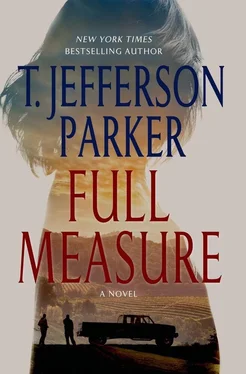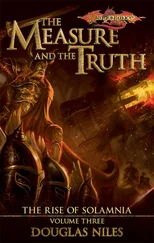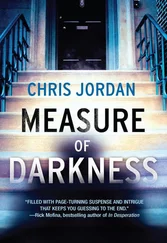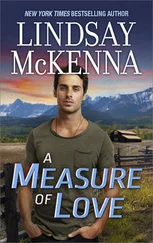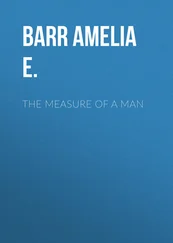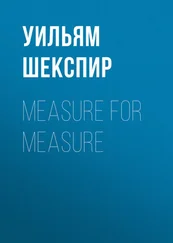Patrick and his father and mother walked the realtor through the family home. The revised offer had come one day after the fire. It was afternoon and the light came through the windows in pleasant autumn angles and Patrick tried to see the place with fresh eyes. The realtor’s name was Scott Dormand and he had worked with Archie and Caroline for twenty-plus years. He had a sad face and depleted hair, dyed blond and combed over. Patrick could tell that Dormand was concerned with an as-is sale, noting the wear on the hardwood floors, the unpopularity of the wallpaper below the chair rails, the unusual “sea foam” color of the tile in the master bath.
“The son of a bitch doctor can do what he wants with it,” said Archie.
“Very true,” said Dormand. “Very true.”
“We won’t take a million three for something worth three million.”
“I know you won’t, Arch. I just wanted to see it again before we make the counter. There’s a lot here to love — the location is magnificent, the home has terrific bones, the kitchen has been remodeled and the plumbing and electric are sound. You’ve got double-pane windows, and the gorgeous old fireplace. On the other hand, we don’t want to scare them off.”
“By asking them to pay what it’s worth?” asked Caroline.
“Before the fire, his offer of two million was low, according to the comps. Asking three million, you were high. But I presented his new offer of one million three to you because that’s my job. And, well, the buyer looks at the ranch and sees the same house he made an offer on before the fire. But he also sees eighty burnt acres of avos that may not come back. He wants those trees. He wants to be a grower.”
“Goddamned Newport Beach doctor wants to be a grower,” said Archie. “Just tell him full asking price — three million, even — take it or leave it.”
“I’ll tell them exactly what you and Caroline want me to tell them. But three million is pretty high, Archie. Prohibitively.”
“Honey?” asked Archie.
Patrick heard his mother sigh. She was wearing her usual white blouse, a pink kerchief around her neck, pressed jeans, and black boots. Her makeup and lipstick were minimal and tastefully deployed. “I’m with you, Arch. Three million.”
“Patrick?” asked Archie. “What do you think?”
“I don’t think you want to sell it.”
“Not for a penny less than three, I don’t.”
“Then hold out, Dad.”
In the silence Dormand cleared his throat. “I really have to doubt that anyone will pay it, in this economy, after this fire. Just so you understand, Archie.”
“I’m not as stupid as I look.”
“Hope the trees live and the rain comes,” said Patrick.
Archie looked at him in assessment. “And if they don’t and it doesn’t, I’ll have to sell it all to salvage three worthless condominiums. A fire sale, literally. God knows what kind of lowball offer that might be. Tell the old sawbones we’re firm at three, Scott.”
“Will do.”
“Would you like to walk the groves, see the trees?”
“There’s no real need for that, Archie.”
Patrick and his parents walked the scorched western boundary of Norris Brothers Growers anyway. In this second full year of drought now cursed by wildfire, the dust and ash rose with their footsteps and hovered in the parched air. Even the weeds and wild grasses that crept to life each year with the first drops of rain were long missing from the untrammeled center of the dirt road and from the shaded, life-friendly soil beneath the avocado trees, even from where the irrigation valves leaked their tiny surpluses into the ground. The earth beneath Patrick’s feet looked like something he’d shovel from a fireplace — dead powder without promise. He thought of the infernal dust of Sangin and the spiders as big as his hand.
They stopped on the high ground and looked down on the eighty acres. Far below, the San Luis Rey River serpentined toward the Pacific in its path of green. From here Patrick could see the barn and the bunkhouse and some of the outbuildings. Ted’s truck was parked in front of the bunkhouse.
“What’s wrong with your brother?” asked Archie. “How can he spend all day inside like that?”
“Some kind of stomachache,” said Patrick. “I’ll let him tell you.”
“He eats a lot of takeout,” said Caroline.
Archie shook his head. “Well, I’m sorry his stomach is upset, but the Farm Credit Bank in San Diego passed on us, Pat. They were our last real hope for a loan. The Norris family is now officially unleashed and on its own.”
“I’ll work extra hard tonight,” said Patrick, checking his watch. “Fridays are big money.”
“What a joy to be unleashed,” said Caroline, draping her arms over their shoulders. “Woof.”
Patrick was right about the big money. He found himself racing between pickup and delivery, then back again for more. How fast he could do the job seemed important. A sheriff’s deputy pulled him over on Alvarado for doing sixty in a forty-five. They talked about the wildfire then Afghanistan, where the deputy had a cousin who was deployed. His cousin knew the Marine who was murdered last week by one of the Afghan army soldiers he commanded on patrol. Slow down, he told Patrick, handing back his driver’s license — woolies aren’t worth dying for and neither is pizza.
But it was hard to hold down his speed. Firooz and Simone had three vehicles going, and every time Patrick came through the Domino’s door they were making and baking pizzas as fast as they could, ordering each other around in Farsi, trying to keep up with the phone and Internet orders in English. On his next run he swerved to miss a Chihuahua darting across Main with its leash still attached, then pulled over and ran down the witless dog, which bit him before he could hand it over to its owner.
He came home at nine o’clock, counted his tips and slipped the bills into an envelope he kept under his mattress. Seventy-eight dollars and change. Not bad.
He showered and walked down to see Ted. The night was close and smelled of soot and an owl huffed through the darkness above the barn. Patrick knocked on the bunkhouse door and stepped in, the dogs wedging past him. Ted sat at his computer table, as usual, playing one of his games. He said he was feeling okay — the pain pills worked like magic and he’d just made it to the next level of the game. Patrick crossed the big rustic room and set a hand on Ted’s shoulder, looking down at the monitor, where the running bull-headed figure tossed wolves into a starlit sky. Patrick saw that Ted had hung several Evelyn Anders campaign posters on the bunkhouse walls: THIS TOWN IS YOUR TOWN. A tall stack of Village View newspapers sat on the computer table and Patrick noted the front-page picture of Evelyn Anders and George’s two young friends. Article by Iris Cash. Ted looked up at him, smiling.
“Why all the pictures of someone you don’t like?” asked Patrick.
“Reminders that I need to do something big and meaningful.”
“Collecting pictures of Evelyn Anders is big and meaningful?”
“Come on, Pat,” Ted said meekly.
“Why do you dislike her so much?”
“Well.” Ted went back to the game for a long moment, guiding his character through the ruins of what looked like a medieval castle. “Evelyn babysat me once. I remember it. Very clearly. You might, too. She kept coming to the bathroom door to ask me if I was all right. She really cared. I was in the bathtub just taking my time, washing everything extra good. You were watching TV in the den. The next day I made her a thank-you card with a frog on it. I mean I cut out a picture of a frog and glued it on, not a real frog. I don’t remember her ever sending me anything back. Like a card or something. Nothing. Nothing. I asked Mom if Evelyn could babysit me from then on but Mom wanted Agatha, the old one. Ick. She smelled like lilac and she wore orthopedic support stockings to hold in her varicose veins. Always asking if she could make me something to eat but her just being there totally like took away my appetite.”
Читать дальше
